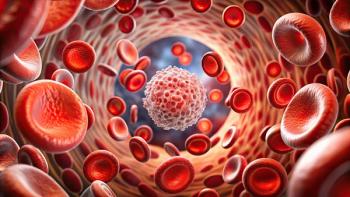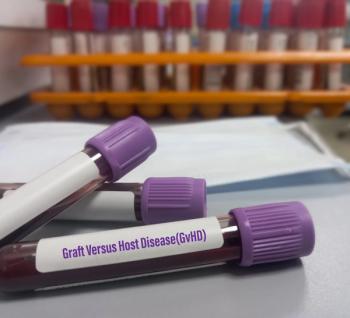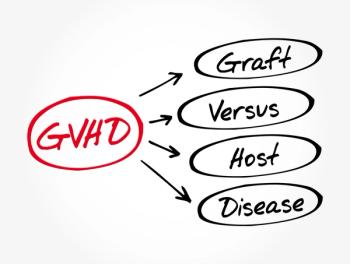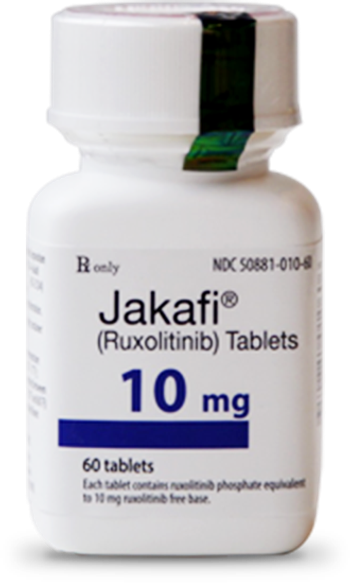
Graft Versus Host Disease
Latest News

Latest Videos

CME Content
More News

Ryoncil is the first mesenchymal stromal cell therapy to be approved in the United States.

John Levine, M.D., a graft-versus-host-disease expert at the Icahn School of Medicine at Mount Sinai in New York, makes a case for biomarkers in a review article published in the American Journal of Hematology.

Researchers in Taiwan find no difference in fungal disease among patients treated with two different types of GVHD prophylaxis.

Approximately two-thirds of patients responded to teduglutide, which is sold under the brand name Gattex as a treatment for short-bowel syndrome.

A single-center retrospective study found the approval and use of new agents to treat chronic graft-versus-host disease (GVHD) is associated with quality-of-life improvements.

Chronic and acute graft-versus-host disease are managed differently, affect different organs, and impact patients in different ways.

The regimen has shown promise in preventing graft-versus-host disease in patients who received a haploidentical stem cell transplant.

A study found omitting a course of antibiotic prophylaxis was non-inferior to the routinely administering antibiotics in patients undergoing allogeneic hematopoietic stem cell transplantation.

Three different doses of Niktimvo all had high rates of response among patients with recurrent or refractory graft-versus-host disease (GVHD).

The retrospective analysis found Black patients were more likely to develop severe graft versus host disease (GVHD) and have a higher risk of nonrelapse mortality than White patients after hematopoietic stem cell transplantation.

This therapy is a first-in-class treatment for chronic graft-versus-host disease, which develops in roughly 42% of those who receive a stem cell of bone marrow transplant.

The Prescription Drug User Fee Act action date is Aug. 28, 2024.

In this concluding segment of a four-part series, Sophie Paczesny, M.D., Ph.D., of the Hollings Cancer Center of the Medical University of South Carolina and an expert on graft-versus-host disease biomarkers, discusses the future of biomarkers as companion diagnostics.

Biomarkers may help identify acute graft-versus-host disease patients who could be treated with alternatives to corticosteroids.

Biomarkers can be used for many purposes — diagnosis, prognosis, projections for success of a treatment. Sophie Paczesny, M.D., Ph.D., a professor at the Hollings Cancer Center at the Medical University of South Carolina and an internationally recognized expert on biomarkers for graft-versus-host disease (GvHD), reviews a typology of biomarkers that groups them into five subtypes and discusses their use in GVHD.

What is a biomarker? Sophie Paczesny, M.D., Ph.D., a professor at the Hollings Cancer Center at the Medical University of South Carolina and an internationally recognized expert on biomarkers for graft-versus-host disease (GvHD), explains.

Results reported in the Journal of Clinical Oncology suggest filtering naïve T cells from peripheral blood stem cell transplants may decrease the risk of chronic graft-versus-host-disease. An accompanying editorial says a randomized trial is needed to provide definitive proof.

This is the fourth approval for Jakafi, a JAK1/JAK2 inhibitor.




























